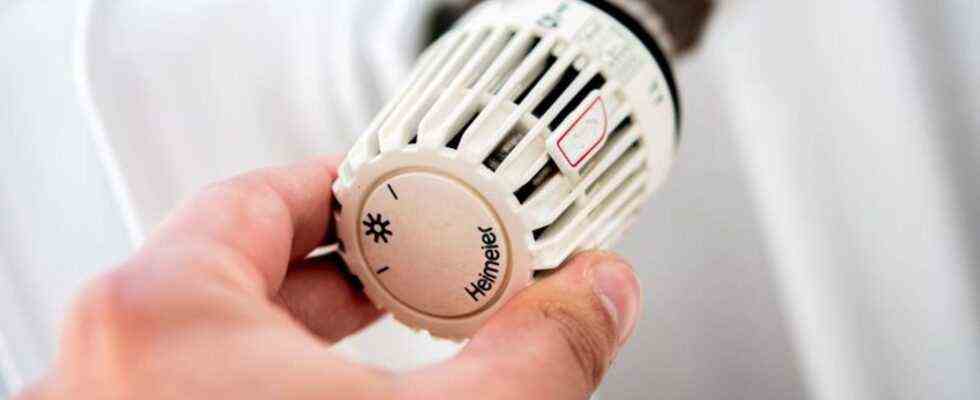Consumer advice centers
Toast the heating subsidy before Christmas
The new federal government wants to pay a one-off increased heating cost subsidy in the short term. Photo: Hauke-Christian Dittrich / dpa
© dpa-infocom GmbH
Many families are already struggling with high electricity bills and heating bills. This year it is particularly bad because of the high energy prices.
Consumer advocates are demanding rapid relief from the high energy prices for those in need.
The new federal government should ideally bring the promised increased subsidy to the heating costs on the way before Christmas, said the head of the federal consumer association, Klaus Müller, the German press agency. In any case, the following applies: “This measure is part of the federal government’s 100-day program to provide cushioning for the people in need.”
In view of the recent rapid rise in energy prices, the SPD, the Greens and the FDP have promised in their coalition agreement: “We will strengthen housing benefits, introduce a climate component and pay a one-off increase in heating costs at short notice.” The flat-rate heating cost is part of the housing benefit paid to low-income households. At the end of 2020, around 618,200 households across Germany were benefiting from this social benefit. The amount depends on the income, the size of the household and the rental or housing costs.
Most recently, the cost of electricity and heating in particular had exploded. According to the comparison portal Verivox, energy has increased in price by 35 percent within a year. “Never before have private households had to pay so much for heating, electricity and fuel,” it said. Chancellor Olaf Scholz (SPD) also addressed the issue in his first government statement. “Especially in times of rising energy prices, we will make sure that energy does not become a luxury good,” he promised. “A warm home is a fundamental right.”
Realistically, the federal government could not cushion the sometimes drastic price fluctuations for all consumers and companies, said consumer advocate Müller of the dpa. At least people with low incomes must be helped.
In addition to the promise of the traffic light parties in the coalition agreement, he called for a renewed suspension of electricity and gas locks in this heating season, “so that nobody has to sit in the dark and cold this winter”. Such a regulation already existed once during the Corona crisis. “It has proven itself,” said Müller.
In general, the consumer advocate believes it is right to demand more money for fossil fuels such as oil and gas over the long term. In a market economy, prices should tell the truth, he said. Driving a lot on petrol and diesel, and flying a lot, pollutes the climate.
However, fossil energy must “become more expensive in a way that I can adjust to,” he emphasized. Citizens should be given the chance to change their behavior and buy more climate-friendly devices, for example. “Rising energy prices are not an end in themselves, they should be a means to make better investment and consumption decisions,” said Müller.
In contrast to the current price hikes, the income will then not go to sheikhs in the Arab region or oligarchs in Russia, but to the federal budget. “Then the finance minister has the opportunity to return the money in a targeted manner.” This could happen through lower electricity prices or a per capita flat rate. “So that I know, on the one hand, that fossil fuels are becoming more expensive, but on the other hand I have the opportunity to perhaps afford climate-friendly mobility, nutrition and warmth.”

